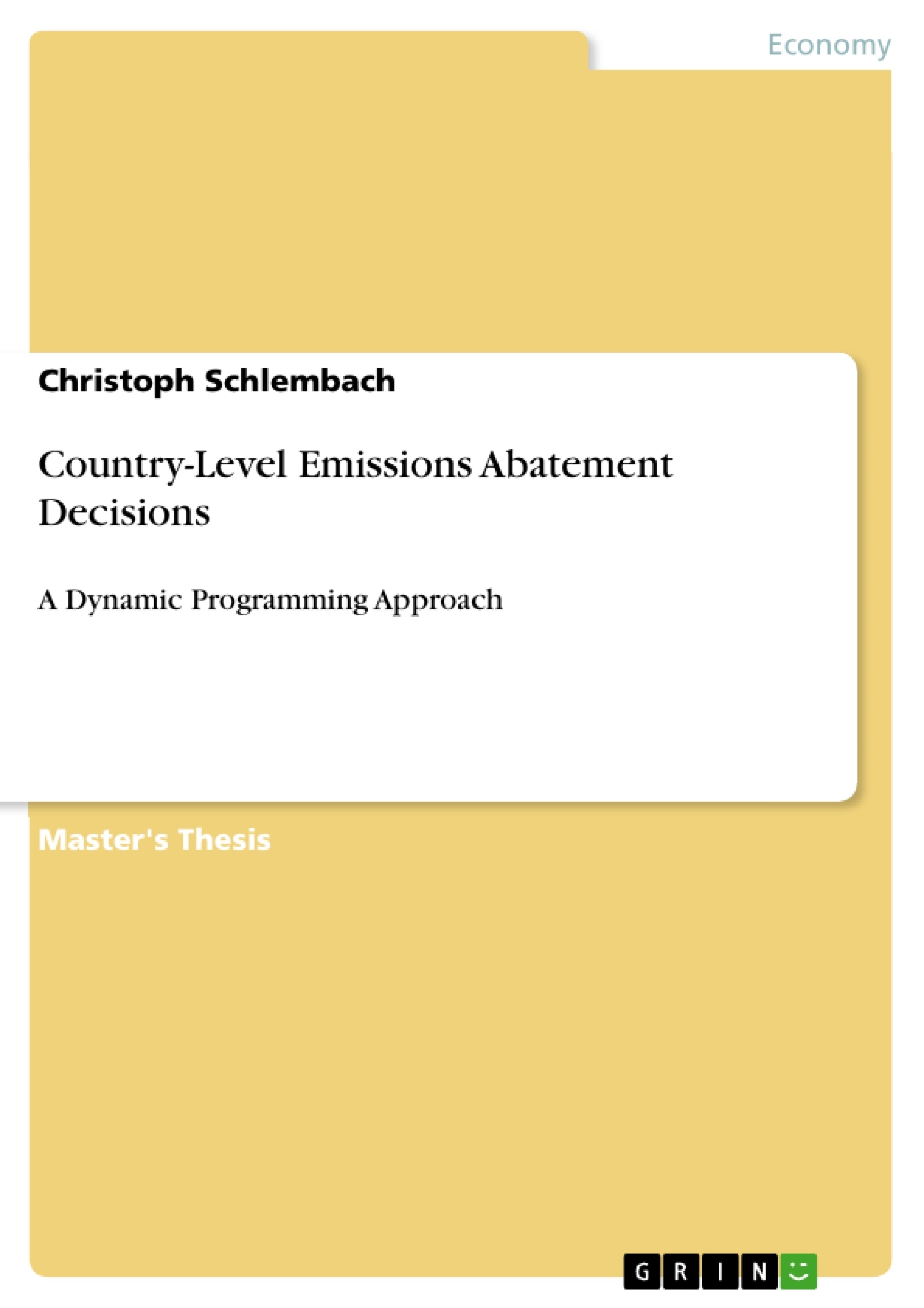The impact of global warming on the global economy has been widely discussed in literature offering a broad variety of estimates. Some papers have examined global impacts of climate change, whereas some studies have focused on regional or local consequences. Taking into account various different publications, the first part of this master’s thesis proposes individual functions at a country level that illustrate the impact of global warming. These functions are further used to simulate the countries’ behaviour over time using dynamic programming. We provide an analysis of the interaction between the abatement costs, the ecological impact caused by a certain temperature increase and the abatement efforts made by the countries. A detailed analysis of their behaviour including the formation of coalitions rounds out the first part of the thesis.
The second part considers recent proposals from the academic and political world. The 21st session of the Conference of Parties (COP21) in December 2015 was described as a fundamental breakthrough in climate negotiations by many commentators. However, several issues such as the establishment of binding quotas for the Parties being linked to
the 2C global mitigation target remain unsolved. We simulate the efforts of the Parties to reduce their emissions based on individual abatement targets.
To the best of our knowledge, our approach is the first one to analyze the behaviour of countries in a climate change context using dynamic programming. All components of the Matlab program providing the results are flexible and can be changed according to the assumptions.
Inhaltsverzeichnis (Table of Contents)
- Introduction
- Model without policy intervention
- Methodology of dynamic programming
- Backward programming
- Forward programming
- Elements of the total cost function
- The abatement cost curve
- The temperature impact
- The ecological impact
- Considering the Parties' expectations
- Evaluation of results
- Methodology of dynamic programming
- Model with policy intervention
- Academic and political background
- Elements of the total cost function
- The abatement cost curve
- Assigning individual requirements.
- Determining a penalty for not meeting the requirements
- Adding randomness
- Accounting for the emissions of developing countries
- Considering the Parties' expectations.
- Evaluation of results
- Comparison of both models
- Conclusion
Zielsetzung und Themenschwerpunkte (Objectives and Key Themes)
This master's thesis aims to analyze the interaction between countries' emissions abatement decisions and the global impact of climate change. It utilizes dynamic programming to simulate the behaviour of countries over time, considering both scenarios with and without policy interventions. The thesis investigates the interplay between abatement costs, temperature increases, and ecological impacts, as well as the formation of coalitions among countries.
- Dynamic programming approach to model country-level emissions abatement decisions
- Analysis of the relationship between abatement costs, temperature changes, and ecological impacts
- Simulation of coalition formation and its effects on emissions reduction
- Comparison of models with and without policy interventions
- Evaluation of the effectiveness of different policy approaches
Zusammenfassung der Kapitel (Chapter Summaries)
The first chapter introduces the research topic and provides background information on the impact of global warming. The second chapter presents the model without policy intervention, detailing the methodology of dynamic programming and the elements of the total cost function. It also analyzes the results of simulations conducted using this model. Chapter three investigates the model with policy intervention, exploring the academic and political background of climate negotiations and incorporating policy elements into the model. It examines the effects of different policy approaches on country behaviour and emissions reduction. Chapter four compares the results of both models, highlighting the key differences and insights gained from each approach. The final chapter presents conclusions drawn from the study, outlining the significance of the findings and suggesting future research directions.
Schlüsselwörter (Keywords)
This master's thesis focuses on country-level emissions abatement decisions, climate change, dynamic programming, abatement costs, temperature impact, ecological impact, coalition formation, policy intervention, and climate negotiations.
- Quote paper
- Christoph Schlembach (Author), 2016, Country-Level Emissions Abatement Decisions, Munich, GRIN Verlag, https://www.grin.com/document/317498



